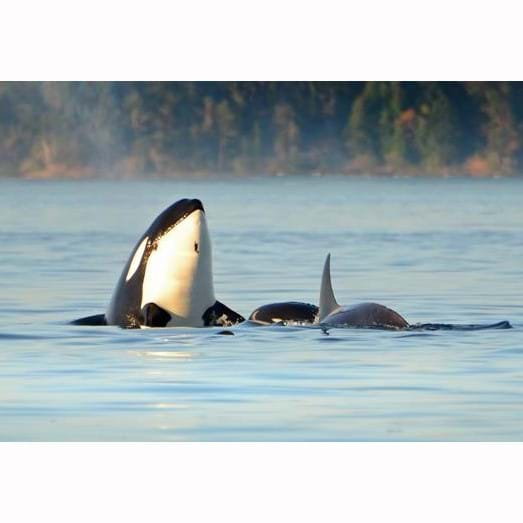Program

Canadian government releases enhanced measures to protect Southern resident killer whales
May 11, 2020
The Government of Canada has expanded protections for the endangered Southern resident killer whales inhabiting the waters off British Columbia’s coast. The additional protections focus on the primary threats to the wellbeing of Southern resident killer whales: prey availability and accessibility, acoustic and physical disturbance, and contaminants. The measures include:
- Protecting access to Chinook salmon with minimal disturbance in key foraging areas. There will again be area-based closures in the Juan de Fuca Strait and Southern Gulf Islands for recreational and commercial salmon fisheries. Specific dates will be announced in June. This year, all fish harvesters will also be asked to voluntarily stop fishing within 1,000 metres (3,280 feet) of killer whales throughout B.C. waters.
- Creating interim sanctuary zones off Pender Island, Saturna Island and at Swiftsure Bank. These zones will be in effect from June 1 to November 30, 2020. This is an additional month longer than last year. No vessel traffic will be permitted in these areas other than certain exceptions for emergency and Indigenous vessels.
- Requiring vessels to maintain at least a 400-metre (1,312-foot) distance from any killer way as of June 1, 2020. Starting this year, this required distance will apply year-round in B.C. coastal waters between Campbell River and Ucluelet, which is farther north than last year’s measure.
- Asking all vessels to “go slow” by reducing speed to less than seven knots when within 1,000 metres (3,280 feet) of a whale. Vessels are also asked to turn off echo sounders and fish finders when not required, and turn engines to neutral idle if a whale is within 400 metres (1,312 feet). This will be a year-around requirement.
- Reducing contaminants affecting whales and their prey. Long-term actions focus on enhancing regulatory controls, monitoring and research, sharing information and data, and expanding outreach and education.
Click here to view the 2020 measures